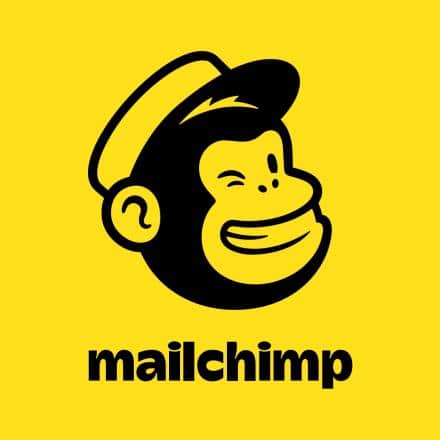Mailchimp vs ClickFunnels: Which Platform Is Right for Your Business?
Choosing the right marketing platform can make or break your online business strategy.
When comparing Mailchimp vs ClickFunnels, you’re looking at two powerful tools that serve different primary purposes but overlap in some areas.
This comprehensive guide will help you understand the key differences, strengths, and ideal use cases for each platform.
|
Primary Rating:
3.5
|
Primary Rating:
3.5
|
|
N/A
|
$97/Month
|
|
Description: Mailchimp is an online email marketing service that helps businesses reach their customers through sophisticated design, automation, and analytics offerings. It allows users to create customized emails for newsletters, promotions and more. |
Description: ClickFunnels is a software platform that enables users to create sales funnels and landing pages quickly and easily. It offers templates, drag-and-drop editing, and integrations with other tools. |
ClickFunnels is a software platform that enables users to create sales funnels and landing pages quickly and easily.
It offers templates, drag-and-drop editing, and integrations with other tools.
[reblex id=’38678′]
Table of Contents
Understanding the Core Differences
Before diving into the details, it’s essential to understand what each platform was designed to do. Mailchimp started as an email marketing service and has evolved into an all-in-one marketing platform.
ClickFunnels, on the other hand, was built specifically as a sales funnel builder to help businesses convert visitors into customers through optimized landing pages and sales processes.
What Is Mailchimp?
Mailchimp is primarily an email marketing platform that has expanded its capabilities over the years. It offers email campaign management, marketing automation, audience segmentation, and basic landing page creation.
The platform is known for its user-friendly interface and robust email marketing features that help businesses of all sizes maintain customer relationships through email communications.
The platform provides tools for creating newsletters, automated email sequences, and targeted campaigns based on customer behavior. Mailchimp also includes basic website building capabilities, social media management tools, and analytics to track campaign performance.
What Is ClickFunnels?
ClickFunnels is a comprehensive sales funnel builder designed to guide potential customers through a conversion process. The platform focuses on creating high-converting landing pages, sales pages, order forms, and complete sales funnels without requiring coding knowledge.
ClickFunnels is built around the concept that businesses need more than just traffic—they need a strategic path to convert that traffic into paying customers.
The platform includes drag-and-drop page builders, pre-built funnel templates for various industries, payment processing integration, membership site functionality, and email automation capabilities. ClickFunnels is particularly popular among digital product sellers, course creators, and businesses that rely heavily on online sales.
Email Marketing Capabilities
When it comes to email marketing, Mailchimp has the clear advantage. As an email-first platform, Mailchimp offers sophisticated segmentation, advanced automation workflows, detailed analytics, and extensive template libraries.
You can create complex email sequences based on customer behavior, purchase history, and engagement levels.
ClickFunnels includes basic email functionality called Follow-Up Funnels (or Actionetics in earlier versions), which allows you to send automated emails within your funnels.
However, these features are more limited compared to dedicated email marketing platforms.
Many ClickFunnels users integrate with third-party email services like Mailchimp or ActiveCampaign for more robust email marketing capabilities.
Sales Funnel and Landing Page Creation
ClickFunnels dominates in the sales funnel department. The platform was specifically designed to create optimized conversion paths, and it shows.
You get access to dozens of proven funnel templates for product launches, webinar registrations, membership sites, and more. The page builder is intuitive, and every element is designed with conversion optimization in mind.
Mailchimp does offer landing page creation, but it’s a more recent addition and doesn’t match the sophistication of ClickFunnels.
Mailchimp’s landing pages work well for simple lead capture and basic promotions, but they lack the advanced funnel capabilities and conversion-focused features that ClickFunnels provides.
E-commerce and Payment Processing
ClickFunnels excels at direct sales through its platform. It includes built-in shopping cart functionality, one-click upsells, order bumps, and integration with major payment processors like Stripe and PayPal.
The platform is designed to maximize transaction value through strategic upselling and cross-selling within the checkout process.
Mailchimp offers e-commerce features primarily through integrations with platforms like Shopify, WooCommerce, and BigCommerce.
While you can send abandoned cart emails and product recommendations through Mailchimp, it’s not designed to handle the actual sales process as comprehensively as ClickFunnels.
Automation and Workflow Capabilities
Both platforms offer automation, but they approach it differently. Mailchimp’s automation is heavily focused on email marketing workflows—sending the right message to the right person at the right time based on their behavior and characteristics.
You can create sophisticated drip campaigns, behavioral triggers, and customer journey maps.
ClickFunnels automation centers around guiding customers through your sales process. This includes showing different pages based on actions taken, adding tags for segmentation, and triggering email sequences when someone enters or exits a funnel. The automation is sales-focused rather than purely communication-focused.
Pricing Comparison
Mailchimp offers a free tier for up to 500 contacts, making it accessible for small businesses and startups. Paid plans start around $13 per month for the Essentials plan, with pricing increasing based on contact list size. The Standard plan provides more advanced features, while the Premium plan offers the most comprehensive capabilities.
ClickFunnels pricing is significantly higher, reflecting its more specialized nature. The basic plan starts at $147 per month, while the Platinum plan runs $197 per month. There’s also an enterprise-level option for larger businesses. ClickFunnels doesn’t offer a free tier, though they do provide a free trial period.
Ease of Use and Learning Curve
Mailchimp is generally considered easier to learn, especially for beginners who primarily need email marketing. The interface is clean and intuitive, with helpful guidance throughout the platform. Most users can create and send their first email campaign within minutes of signing up.
ClickFunnels has a steeper learning curve due to its extensive features and funnel-building focus. However, the platform provides significant training resources, including tutorials, templates, and an active community. Once you understand the funnel concept and platform navigation, it becomes quite manageable.
Integration Ecosystem
Mailchimp integrates with hundreds of third-party applications, including CRM systems, e-commerce platforms, social media tools, and analytics services. This extensive integration ecosystem makes it easy to connect Mailchimp with your existing tech stack.
ClickFunnels also offers numerous integrations, particularly with payment processors, webinar platforms, email services, and CRM tools. However, its integration library isn’t quite as extensive as Mailchimp’s, though it covers most essential business tools.
Analytics and Reporting
Mailchimp provides detailed email analytics, including open rates, click-through rates, geographic data, and engagement over time. The platform excels at helping you understand email performance and audience behavior patterns.
ClickFunnels analytics focus on funnel performance—tracking conversion rates at each step, identifying drop-off points, and measuring overall funnel effectiveness. You can see exactly where potential customers are leaving your funnel and optimize accordingly.
Customer Support
Both platforms offer multiple support channels, including email support, knowledge bases, and community forums. Mailchimp provides chat support for paid plans, while ClickFunnels offers priority support for higher-tier plans. Both companies have active user communities where you can find answers and best practices.
Ideal Use Cases
Mailchimp is ideal for businesses that prioritize email marketing and customer communication. It’s perfect for content creators, bloggers, small e-commerce stores, nonprofits, and service-based businesses that need to maintain regular contact with their audience through newsletters and automated emails.
ClickFunnels is best suited for businesses focused on online sales and lead generation through optimized conversion paths. It’s particularly valuable for digital product sellers, course creators, coaches, consultants, agencies, and businesses that rely on webinars or high-ticket sales.
Can You Use Both Together?
Many businesses successfully use both platforms together, leveraging each for their strengths. A common approach is using ClickFunnels for sales funnels and landing pages while using Mailchimp for ongoing email marketing and nurture campaigns.
This combination allows you to benefit from ClickFunnels’ conversion optimization while maintaining robust email relationships through Mailchimp.
Making Your Decision
The choice between Mailchimp vs ClickFunnels ultimately depends on your business model and primary needs. If email marketing and customer communication are your main priorities, Mailchimp offers better value and more specialized features.
If you need to create high-converting sales funnels and your business model revolves around online sales, ClickFunnels is the stronger choice.
Consider your budget, technical expertise, and business goals. Mailchimp’s lower price point and free tier make it accessible for smaller businesses and those just starting out. ClickFunnels’ higher cost is justified if your business generates significant online revenue through optimized sales processes.
Final Thoughts
Both Mailchimp and ClickFunnels are powerful marketing tools that excel in their respective areas. Mailchimp wins for email marketing sophistication and affordability, while ClickFunnels dominates in sales funnel creation and conversion optimization.
Understanding your primary business needs will guide you to the right platform—or perhaps to using both in tandem for maximum marketing effectiveness.
Take advantage of free trials or free tiers to test each platform before committing. This hands-on experience will give you the best sense of which tool aligns with your workflow and business objectives.


